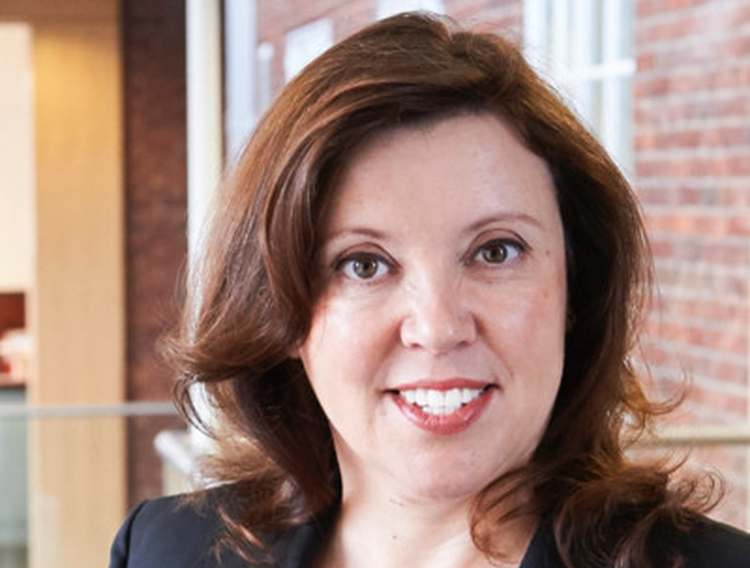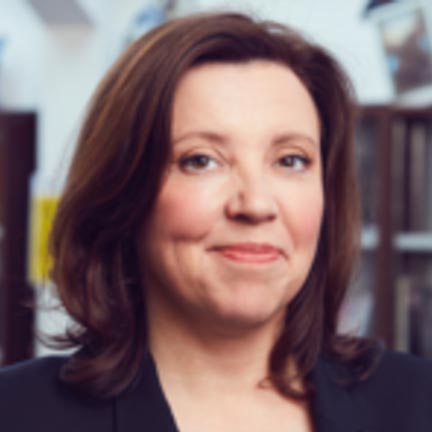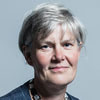Children’s Commissioner to address her ‘Big Ask’ survey findings at the University of Birmingham

Dame Rachel de Souza, the Children’s Commissioner for England will be delivering the Annual Priestly Lecture at the University of Birmingham.
Dame Rachel will be delivering the Priestly Lecture on October 7th to present the findings of her Big Ask Survey where 557,077 children were surveyed making it the largest survey of children in the UK which has presented crucial insights into the lives of children as we recover from the pandemic.
Key findings from the survey highlight how despite the sacrifices they have made; the majority of children say they are happy. Their message is clear: this is not a ‘snowflake’ generation – it is a heroic generation. Despite all the sacrifices they’ve made, children told us they want to get back to school, get on, and do well. To have fulfilling careers. To contribute to a better world – a greener world, rooted in fairness of opportunity for everyone.
Dame Rachel will present some of the findings of the survey and set set out her recommendations for support across key areas: families, health and well-being, schools, communities, career pathways and children in care. All of these efforts point us towards the better world this generation want to create.
The report, “The Big Answer” examines how overall, despite the effects of the pandemic children in England are happy, and optimistic, but have specific concerns and worries. Across all groups of children, no matter their ethnicity, deprivation, vulnerability, the top things they care about at the moment are the same: their mental and physical health, things to do in their local area, life at school, progress in education. There was also a significant focus placed on future careers: 69% of 9-17-year olds said having a good job was one of their main priorities.
Commenting on her lecture Dame Rachel said: ““It’s a great honour to deliver the Priestly Lecture, and do be able to do so at what I think is a critical moment for children in our country. I’m delighted I’ll have the chance to demonstrate via the largest survey of children undertaken anywhere, ever, what it is they want to see to transform their futures and leave the problems of the pandemic far behind them.””
As Children’s Commissioner for England, Dame Rachel promotes and protects the rights of children, standing up for their views and interests and acting as their ‘eyes and ears’ across government.
Dame Rachel is a nationally recognised educator and advocate for improving the life chances of disadvantaged children. Before her appointment as Children’s Commissioner, she led two schools from failing to outstanding, before founding and leading the Inspiration Trust, a family of fourteen schools in East Anglia. The Trust was twice ranked as the nation’s top group of comprehensive schools based on pupil progress at GCSE. She was made a Dame in 2014 for services to education.
The Priestley Lecture 2021, with Dame Rachel de Souza. Location Lecture Theatre 2 (102), Teaching and Learning Building. Dates Thursday 7 October 2021 (17:30-18:30).
The Priestly Lecture is organised by the School of Education and named after Sir Raymond Priestley, a former Vice-Chancellor of The University of Birmingham from 1938 to 1952 who was a great supporter of the education of teachers and in 1959 it was decided to name this annual lecture after him.
The Children’s Commissioner answers the half a million children, from across the country and all backgrounds, who told her Big Ask survey how the pandemic affected them, how excited and ambitious they are for the future and that they’re ready, and want, to be at the heart of our nation’s recovery.
“Our words matter as we are the next generation.” – Girl, 14
Dame Rachel de Souza DBE, Children’s Commissioner for England is today responding to those 557, 077 children who made her Big Ask survey of children (21st April- 16th May 2021) the largest survey of children of its kind anywhere, ever. In a message both thanking them and revealing her thinking about what they said, she sets out both immediate policy changes that would make England’s children and children in England’s lives better. She also points to future areas of change where she and her Office will work on in the long term. “This report isn’t the end of the Big Ask, it’s the start of a new deal for children”
The report, “The Big Answer” highlights how overall, despite the effects of the pandemic children in England are happy, and optimistic, but have specific concerns and worries. Across all groups of children, no matter their ethnicity, deprivation, vulnerability, the top things they care about at the moment are the same: their mental and physical health, things to do in their local area, life at school, progress in education. There was also a significant focus placed on future careers: 69% of 9-17 year olds said having a good job was one of their main priorities.
Amplified by their experience in the pandemic children have better understood the value of a supportive loving family life, the importance to them of being physically and mentally well, and that they like being in school. However, they want more to do in the real world, as they understand the online world has been both a blessing and a curse. Nor is their focus just on themselves. Children told us they want fairness for all, and they care deeply about the environment – the second most common future worry for children between 9-17 was whether they would grow up to benefit from a healthy planet. 39% of 9-17 year olds say challenges to the environment is one of their main priorities and concerns for the future.
The report divides the findings into six themed, but linked areas: family, community, health and well-being, schools, jobs and skills, and children in care.
Key Findings:
- 71% of 9-17 yr. olds and 94% of 6-8 yr. olds are happy with their life overall, though 9% of 9-17 yr. olds don’t think they’ll have a better life than their parents.
- Of those who are unhappy 70% were unhappy with their mental health.
- Girls are twice as likely to be unhappy with their mental health than boys and 52% of 9-17 yr. olds say having good mental health is one of their main aspirations.
- 80% of 9-17 yr. olds said they are happy with their family life but where children are unhappy with that, they are 9 times more likely to be unhappy with life overall.
- 57% of children from deprived areas said leaving school with a good education was one of their most important priorities.
There are a wide range of immediate Big Answer policy suggestions, including:
- A comprehensive catch-up package for schools, an urgent focus on improved services to children struggling with attendance and consequences of the pandemic, and voluntary time, after school but in school, for catch up and activities.
- A rapid expansion of mental health support teams using the voluntary and charitable sectors, developing consistent digital counselling which children often say they prefer, and develop Community mental health hubs to provide children with open access to NHS services for advice and treatment.
- A package of measures to improve children’s online experiences including stronger safeguarding from social media platforms and preventing children’s access to online pornography.
- Extend the Kickstart programme for 6 months into 2022, to allow for more placements to be established, a specific strategy to improve the quality and quantity of apprenticeships across a wider range of sectors.
- Expansion of the Family Hubs network, and use them to make public services more accessible, integrated and efficient. Double the Supporting Families programme.
- Immediate investment in better residential children’s homes, measures improve children in care’s access to mental health support and immediate improvements to care-leavers support including reforms to universal credit for them.
Sector Response
 Dame Rachel de Souza, Children’s Commissioner for England said:
Dame Rachel de Souza, Children’s Commissioner for England said:
” When I launched the Big Ask, I hoped for a big response, and we got a huge one. Within the half-a-million-plus responses we got is a rich display of honesty, hope, and authenticity about what concerns them. Given what they have sacrificed during the Covid pandemic, not only did they deserve a Big Answer from me, which I think we have given but they have inspired me with how resilient, consistent, optimistic, and thoughtful they are, even those most vulnerable and from deprived backgrounds. Our response today which is full of recommendations to start improving their lives now, is not the end of the process. The voice of half million children gives me, and those in my team, a road map for how we continue to build a brighter future for childhood in England, not just in the aftermath of the pandemic but for the long term. I hope the Big Answer will be the foundation for a truly transformative period for a generation who are far from ‘lost’ and need all of us to help build them the future they most certainly deserve”
 Kate Green MP, Labour’s Shadow Education Secretary, responding to the Children’s Commissioner for England’s ‘The Big Ask’ survey, said:
Kate Green MP, Labour’s Shadow Education Secretary, responding to the Children’s Commissioner for England’s ‘The Big Ask’ survey, said:
“Children and young people have faced unprecedented challenges over the last 18 months but remain optimistic, ambitious and excited for their futures.
“Labour is determined to match this ambition with our comprehensive catch-up plan – as the Children’s Commissioner has called for – delivering small group tutoring, new activities for every child to socialise and play with friends, and expert mental health support in every school ensuring children can bounce back from the pandemic.
“The Conservatives have treated children as an afterthought throughout the pandemic and are now neglecting them in our recovery with a ‘feeble’ catch-up plan. It’s time the Conservatives step up and match Labour’s ambition for our children and their futures.”
 Paul Whiteman, general secretary of NAHT, said:
Paul Whiteman, general secretary of NAHT, said:
“As the Children’s Commissioner’s research attests, the current crop of school pupils is anything but a ‘lost generation’. They are thoughtful and full of hope for the future. They are determined to see that progress is made on the issues that are most important to them, like climate change and equality.
“There is no doubt that the intense work of schools during the last eighteen months shielded many young people from the worst effects of the pandemic. The Prime Minister’s promise that no child would be left behind due to lost-learning during the pandemic now needs to be delivered.
“Many aspects of the Children’s Commissioner’s report resonate with what NAHT has found in surveys of our own members, and with what we have been urging government to do. Whilst there will be many different conflicting priorities this autumn, the case must be made that funding educational recovery is an investment in this country’s future, not simply another drain on the nation’s finances. Now is the time for the government to get serious about recovery. With the Comprehensive Spending Review due in a just a few weeks, there is no time to waste.
“School leaders have seen the negative impact that the pandemic has had on children’s mental health. Young people need not just academic help, but a wide range of pastoral, mental health and wellbeing support too, all of which requires additional resources. We acknowledge this report’s suggestions for improved, expanded mental health support for children and families because schools cannot be the only place children or their families are able to turn to for help with mental health. The support of well-integrated and well-funded social and health services is equally vital. Sadly, these services have been seriously damaged by a decade of austerity.
“On the issue of online safety, the tech companies that own and operate the social media channels that are popular with young people have an undeniable duty of care to make them safe to use. NAHT has put forward its suggestions on this matter and on the content of the government’s Online Safety Bill.”












Responses